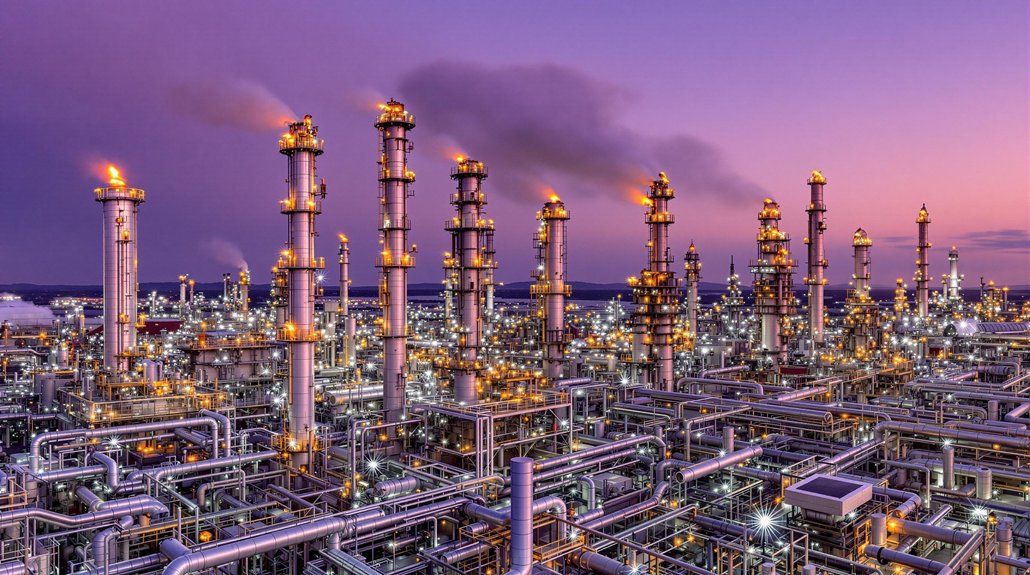Ethylene is made through steam cracking, a brutal process that blasts hydrocarbons with temperatures up to 950°C. No catalyst needed – just pure thermal violence and high-pressure steam doing the heavy lifting. The cracked gas gets compressed, cleaned, and separated until it’s 99.9% pure. While alternative methods exist, steam cracking remains the industry’s heavyweight champion, churning out 200 million tons annually. There’s more to this chemical beast’s story than meets the eye.

Ethylene bursts forth from a fiery process known as steam cracking. It’s a brutal yet elegant dance of heat and pressure, where hydrocarbons are literally ripped apart at temperatures hot enough to melt aluminum – we’re talking 750 to 950°C. The process isn’t picky about its food either. Natural gas, naphtha, gas oil – they all work. Throw in some high-pressure steam, and boom – you’ve got yourself a chemical transformation.
The whole operation happens faster than you can say “petrochemical.” No catalysts needed here – just raw thermal power doing what it does best. The key is to cool everything down quickly before those newly formed molecules decide to do something stupid, like react again. It’s like catching lightning in a bottle, except the lightning is ethylene, and the bottle is a massive industrial complex. With approximately 200 million tons produced annually, ethylene stands as the most produced organic compound in the world.
Once the initial chaos settles, things get technical. The cracked gas gets compressed, cleaned, and cooled to temperatures that would make a penguin shiver. Through a series of separations that would impress any chemistry teacher, ethylene emerges in its pure form – 99.9% pure, to be exact. That’s what we call polymer-grade, folks. While petroleum remains the primary source, researchers are exploring how plant hormones could provide alternative production methods.
Sure, there are other ways to make ethylene. Some clever scientists came up with alternatives like oxidative dehydrogenation of ethane or the methanol-to-olefins process. There’s even talk of electrified steam cracking for the environmentally conscious. But let’s be real – steam cracking still rules the roost.
The numbers tell the story: 141 million tonnes produced globally in 2011, with 117 companies across 32 countries getting in on the action. Most of this ethylene ends up as polyethylene – you know, the plastic that’s literally everywhere. The rest goes into making everything from antifreeze to vinyl siding.
It’s a massive industry that keeps growing, especially in the Middle East and China, even though it pumps out CO2 like there’s no tomorrow. But that’s the price of progress, isn’t it?








